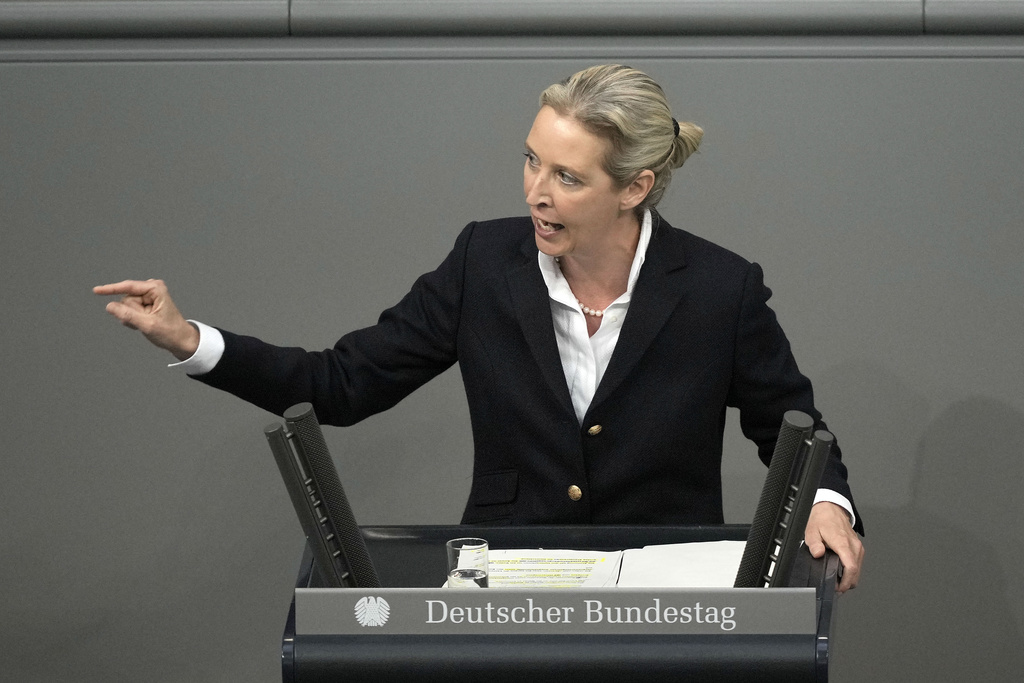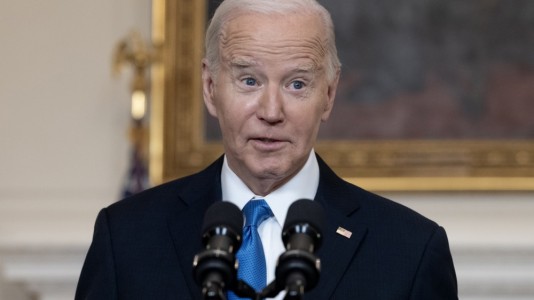In Germany, the liberal government is in a relentless pursuit of the right-wing Alternative for Germany (AfD) party. The government is working hand-in-hand with the media, which always prefixes the right-wing label with “extremist,” thus alarming decent German citizens who desire stability and calm.
After an AfD meeting near Potsdam, at which the deportation of some illegal migrants was allegedly discussed, was made public in January, the governing parties – the Socialists, the Greens and the Free Democrats – launched a professionally organized hate campaign against the party. Nobody with a particularly high profile was present at the meeting, although an influential member of the AfD, who has no party function whatsoever, was present in a private capacity.
Now, the banning of the party entirely is on the agenda.
Early on, the government’s campaign against the AfD seemed to be a success. The anti-immigrant party’s popularity saw a slight decline, but the trend has quickly come to a halt and the AfD is back above 20 percent nationally.
[pp id=93209]
This situation can no longer be tolerated by the liberal government, so it is now resorting to a variety of legal means that will put the principles of the rule of law to the test. The highly controversial Interior Minister Nancy Faeser has trodden on legally shaky ground and gone to a level of extremes not seen in Germany since the end of the Second World War, warning that “no one who donates to a right-wing extremist party can go unnoticed.”
The package of measures is therefore politically motivated and designed to provide a tool for the ruling parties to take action against the political opposition. In the end, the question is which parties will be deemed “right-wing extremist”? It is not publicly known what the criteria will be for determining this, and as a tool to be used, it is best to leave the specifics vague.
There is no mention of what will happen to the far-left parties. That is to say, if we understand the content of the measures to be introduced correctly, then far-right parties cannot be supported financially, while far-left political groups can be supported financially without any risk.
With a little logic, we can see where the dividing line is between the parties that can and cannot be funded. The relationship to illegal migration determines which party avoids the full weight of the surveillance and intelligence state. Those in favor of the resettlement of foreigners are either labeled extremist or not labeled at all.
The fact that the Left Party in Germany — the successor to the communist party of the GDR era — has not been given this label is because it fell into bed with liberal and globalist ideologies. From then on, it became presentable. If the situation after next year’s parliamentary elections is such, it could even become a coalition partner for fellow globalist parties, as has already happened. After all, the mainstream parties have no problem with the Left. The mantra is: “Let the migrants come.”
[pp id=108073]
In other words, the government has made the intelligence services a tool of its own party’s political interests, subordinating them to the political goals of those in power. The consequence of this is that under the new law, a party, in this case the AfD, no longer needs to have committed a specific offense to be monitored.
It will be enough for the Office for the Protection of the Constitution to make a subjective judgment and see a risk in the functioning of the party in question.






